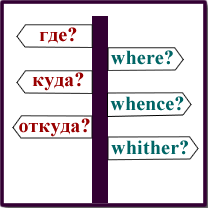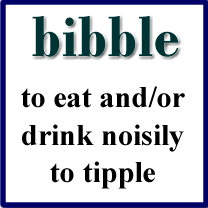
Here’s a recording in a mystery language.
Can you identify the language, and do you know where it’s spoken?

Here’s a recording in a mystery language.
Can you identify the language, and do you know where it’s spoken?
Have you ever wondered how many alphabets and other writing systems are used regularly?
I show this in the writing system indices on Omniglot, although it isn’t always easy for less well-known writing systems to be sure how much they are used.
Also, how many different writing systems can you recognise?
This video explains how to recognise all the writing systems in regular use:
It covers the following scripts:
Alphabets
Latin, Cyrillic, Greek, Armenian Georgian and Mongolian
Abugidas
Bengali, Devanagari, Gujarati, Gurmukhi, Tibetan, Odia, Telugu, Kannada, Malayalam, Sinhala, Burmese, Khmer, Lao, Thai and Thaana
East-Asian scripts
Chinese, Japanese and Korean
Rare scripts
Tifinagh, N’Ko, Samaritan, Syriac, Inuktitut/Cree, Cherokee, Yi, Ol Chiki, Fraser and Tai Le
Did you get any language-related goodies for Christmas?
Are you planning to start learning any new languages next year?
I got a British Sign Language (BSL) course, The Accidental Dictionary by Paul Anthony, and a t-shirt with hello on it in many languages.
I plan to concentrate on improving my knowledge of the languages I already know, rather than starting any new ones. Whether I stick to this remains to be seen.
Oh and Merry Christmas
Nadolig Llawen
Joyeux Noël
Nedeleg Laouen
Frohe Weihnachten
Nadelik Lowen
聖誕快樂
Nollaig shona
メリークリスマス
Nollick Ghennal
¡Feliz Navidad!
Nollaig Chridheil
С Рождеством
God jul
Veselé vánoce
Glædelig jul
Ĝojan Kristnaskon

Here’s a recording in a mystery language.
Can you identify the language, and do you know where it’s spoken?
Last night I saw FARA, a brilliant group from Orkney, in our local arts centre. One of the songs they sang, Speir Thoo The Wast Wind, was in Orcadian dialect and based on a poem by Christina Costie from Orkney.
Orcadian dialect is a type of Insular Scots that combines elements of the extinct Norn language and Scots. There isn’t a lot of information available about Orcadian, but I will try to put together a page about it on Omniglot.
Each verse of the song and the poem finishes with the line “Speir thoo the wast wind, bit speir no me”, which means “Ask the west wind, and don’t ask me”, I think.
The word speir [spiːr], which is also written speer, means to enquire or ask, according to The Orkney Dictionary. When I heard it in the song, I thought I might be related to words for to ask in North Germanic languages, and it turns out that it is.
It comes from the Old English spyrian (to track, inquire, investigate, examine), from the Proto-Germanic *spurjaną (to search; to examine; to ask) [source], which is also the root of the Danish word spørge (to ask, inquire), Norwegian word spørre (to ask, inquire), and the word spyrja (to ask) in Icelandic and Faroese [source].
A few other words from Orkney dialect: hoodjiekapiv, hoodjiekapiffle, hoodjiekaboogle, which are all Orcadian equivalents of whatsit, thingy, doobry, thingamajig, whatjumacallit, thingamebob, etc [source]. What do you call something when you can’t remember it’s normal name?
You can hear the song here:

In Russian, there are several different words meaning where. Each one means something slightly different, although in English they can all be translated as where.
где [ɡdʲe] means where, as in what location, and can also mean anywhere or somewhere. For example:
Related words include:
где comes the from Old East Slavic къде (kŭde – where), from the Proto-Slavic kъde (where), from the Proto-Indo-European *kʷú-dʰe (where).
куда [kʊˈda] means where (to), and also what, why or much. It is the equivalent of whither in English, although that is rarely used these days. For example:
Related words include:
куда comes from the Proto-Slavic *kǫda ( where, whither), from the Proto-Indo-European *kʷom-dʰ- (where).
откуда [ɐtˈkudə] means where from, from where, from which or whence (another rarely-used word). For example:
Related words include:
откуда comes from the same root as куда.
Sources: Reverso, Wiktionary

Here’s a recording in a mystery language.
Can you identify the language, and do you know where it’s spoken?

To plug away at something means “to move or work doggedly and persistently” [source] or “to continue doing something even though it is difficult or boring” [source], as in “He kept plugging away at his Russian, even though he didn’t seem to be making much progress.”
I learnt this week that there is a similar expression in Swedish – att plugga – which means “to study, to bone up, to cram, to grind” [source], and also “to plug, to stop with a plug; to read up, to study intensively, as in preparing for a test; to promote”, as in to plug a book [source].
In my Swedish lessons, att plugga is defined as meaning “to study (anywhere, informal)”, while att studera means “to study (at university, formal)” [source].
According to the bab.la dictionary however, it seems that att plugga can also be used to refer to university studies.
For example:
att studera is defined as “to study, to do, to examine, to get up, to pore” [source]. It can also mean “to investigate” [source].
Is studera used in more formal language than plugga?
Is there a Swedish equivalent of ‘Keep plugging away’?
There are various ways to say you’re studying something in English as well. If you’re at a university in the UK, you might say “I’m studying Quantum Knitting”, or “I’m doing a degree in Basket Weaving”. Students Oxford or Cambridge Universities might say “I’m reading Toffology”. What about elsewhere?

I came across a wonderful word yesterday – bibble – which means to eat and/or drink noisily, or to tipple. Or in Yiddish it means to worry.
It comes from the Middle English bibben (to drink), from the Latin bibō (I drink), from Proto-Indo-European *peh₃- (to drink) [source].
If you’re a bibbling bibbler, you may need a bib, which comes from the same root, and originally meant to drink heartily [source]. While bibbling, maybe you’ll engage in some bibble-babble (idle talk, babble), possibly in a bibbery (drinking house), which would be bibacious.
The words imbibe, potion and potable come from the same root, as do words for to drink in various languaages, including: ól (Irish), òl (Scottish Gaelic), yfed (Welsh), eva (Cornish), boire (French), and beber (Spanish, Portuguese, Galician, Asturian & Aragonese).
Words for beer Slavic languages come from the same root as well: pivo (Croatian, Czech, Slovak & Slovenian), piwo (Polish, Sorbian), and пиво (Russian, Ukrainian, Bulgarian, Macedonian & Serbian).

Yesterday I finally worked out how to create musical scores on my computer (using musescore). It’s something I’ve tried before, but couldn’t get the hang of. So now I’m going write out all the tunes I’ve composed. As I’m doing this, I thought I’d look into the names of some musical notes and their origins.
The commonly-used types of musical notes are shown in the image. Their names are different in British English and American English. The American English names are self-explanatory, and a bit boring. The British English ones are more interesting, so let’s look at where they come from:
A semiquaver is half the length of a quaver, and a demisemiquaver is half the length of a semiquaver. Shorter, and less commonly-used notes include:
Sources: Wikipedia, Wiktionary, Online Etymology Dictionary